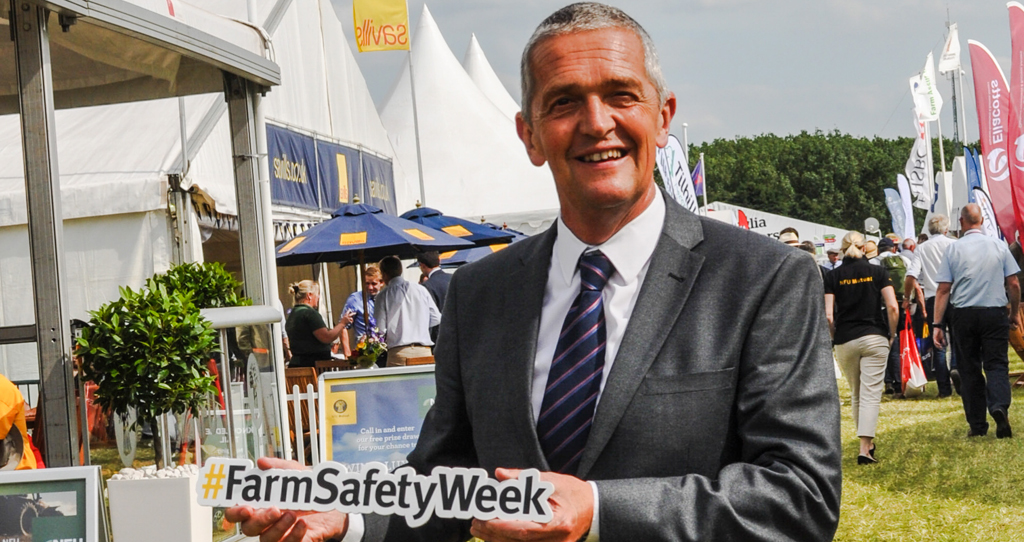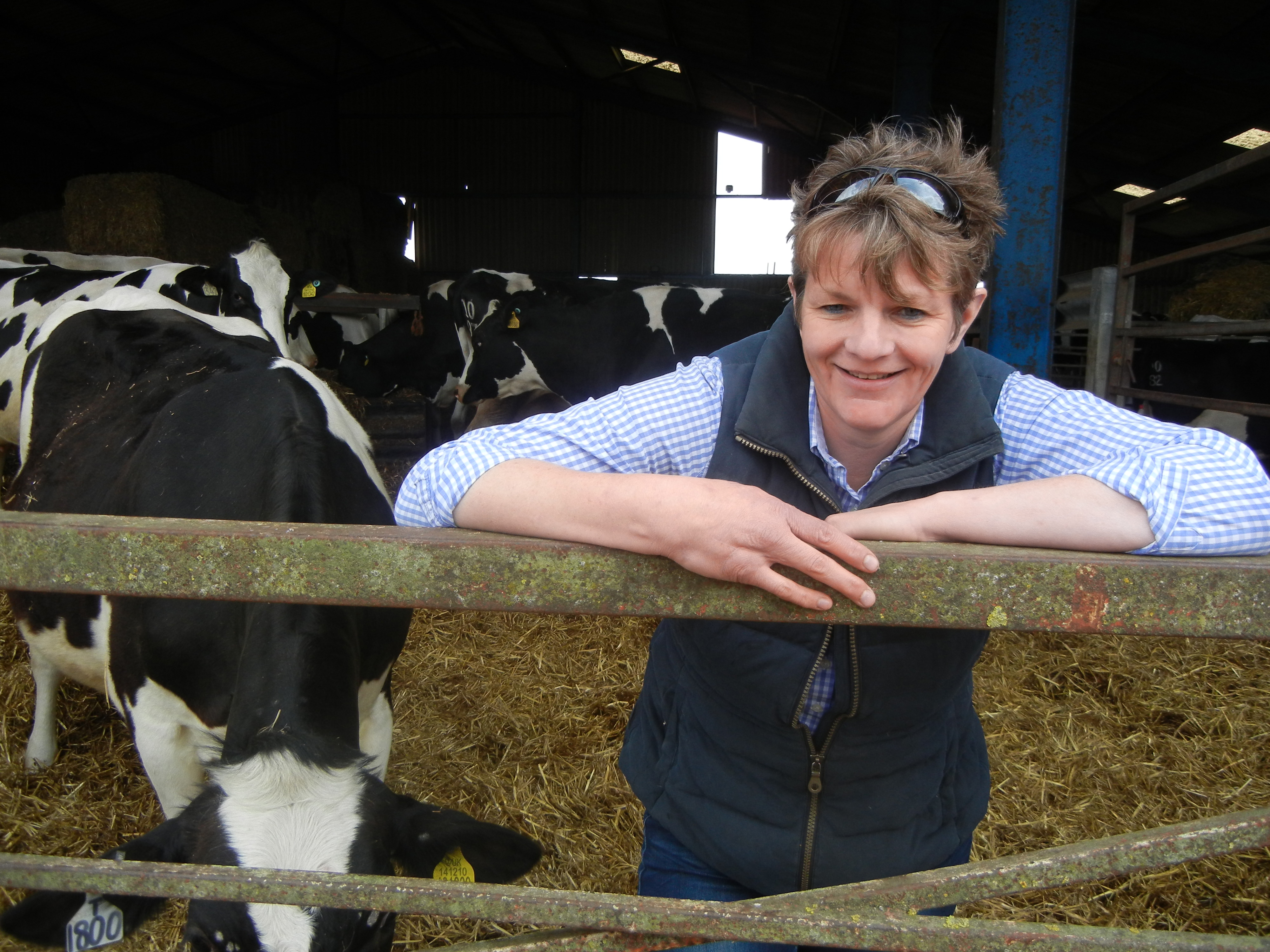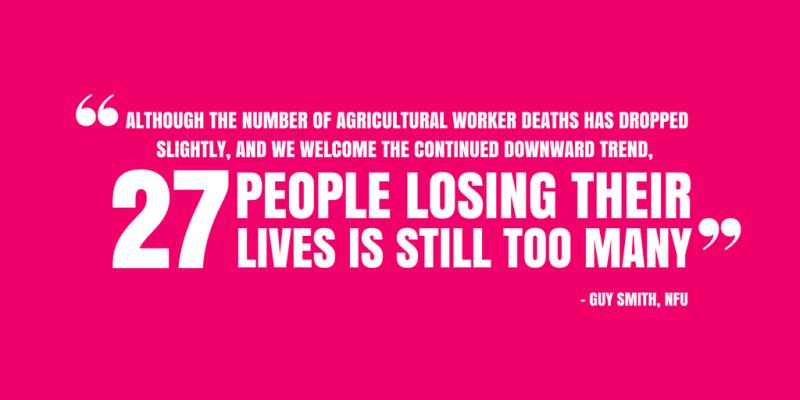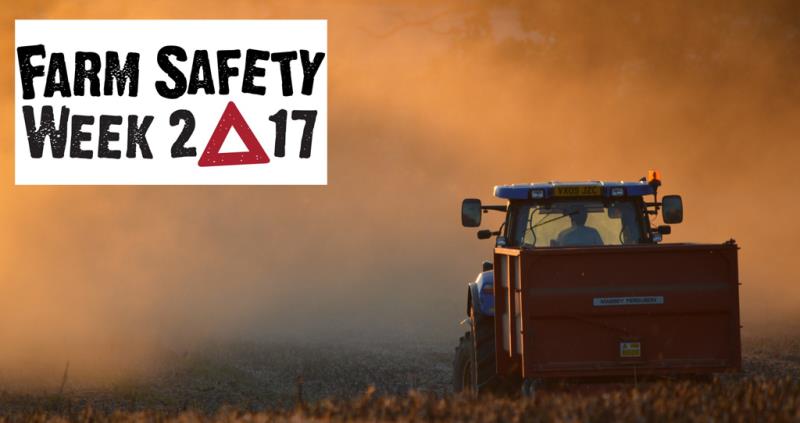Farmers come into contact with a host of machinery daily which all bring their own attendant dangers. Hands, hair and clothing can be caught by unguarded PTO shafts or other unguarded moving parts such as pulleys and belts. People can be injured by front-end loaders, falling from a moving tractor or being struck by its wheels (read Helen's story here).
Machinery and transport - advice and best practice
NFU Vice-president and chairman of the Farm Safety Partnership, Guy Smith, said: “Machinery and transport continue to be the main causes of life changing and life ending injuries on farms. In fact 40% of all farm workers who have lost their lives in agriculture over the past decade were workplace machinery-transport related.

“Whilst this year we have seen an improvement in the numbers of farmers losing their lives as a result of machinery and transport, the fact is that one death is one too many. Farm Safety Week is in its fifth year of existence, farm safety training is improving across the country and regional initiatives like Devon Young Farmers Club’s recent ‘Growing Safer Farmers’ all demonstrate that agriculture is an industry who agree that enough is enough and want to make a change.”
He added: “Everybody in farming knows somebody who has been injured or killed in an accident. Reminding farmers that farm safety is a lifestyle, not a slogan seems like the right thing to do this week, given the culture of risk raking in the industry. One day your luck could run out. One day it could be you.
“Agricultural machinery may be advancing with safety features but it is still dangerous so please take a minute to use the SAFE STOP approach - ensure tractors, telehandlers and associated equipment is switched off when doing routine tasks or making routine checks and maintenance and take your time to think about what you are doing and what might go wrong as making a few simple checks could actually save a life – maybe your own!”
Helen’s story – ‘a risk I'd taken a million times before’
After losing two fingers on her right hand in a life changing accident with a bottling machine four years ago, Helen Banham, a dairy farmer from Skegness Lincolnshire, is all too aware of how easily a risk that you have taken “a million times before” can change your life and your business forever…
Very early on the morning of 12 December 2012, Helen was working on Rich Pastures Farm, where she and her husband David bottled and sold their milk to local shops and supplied local businesses under their Rich Pastures Dairy label.
As Helen was going about her daily routine a bottle dropped through the machine. Instinctively, and without thinking or turning off the bottling line she reached into the machine to grab it. The results of her actions were devastating and would have long lasting effects for her, for her family and for the family’s farming business.
Helen’s right hand was trapped in the machine; her thumb was severed and a spike penetrated the palm of her hand. Without thinking she pulled her hand free and in doing so, ripped her hand open, severely and irrevocably damaging the tendons of her third finger.
“It was our wake-up call,” said Helen. “The milk business was taking up so much of our time; we were really up against it: we couldn’t afford to take on any more staff, costs were rising and the prices we could charge just weren’t covering our costs. I know I was on auto-pilot, but we were both working full-on, just trying to stay ahead of the game, doing more and more ourselves and pushing ourselves to the limit.”
Helen’s husband and business partner David added: “We did know that the machine needed to have some guards added; that was the stupid thing about it. We had employed a health and safety consultant who had said something about guards, but we hadn’t picked up on it, specifically. The trouble with farming is that you’re always a ‘jack of all trades’ and constantly juggling jobs and we wanted so much for the milk processing part of the business to work, so perhaps we didn’t have our eye on the safety side of things as we should have done."
More safety advice and further resources
- Farm safety on NFUonline
- Falls from height and workshop accidents can be prevented by using the right kit and hiring in equipment when needed
- Measures can be taken to control the risk from livestock
- Risks from overhead lines can be avoided
- Visit the Farm Safety Partnership website here
- Read the HSE's farming sector guide
- HSE figures on work-related deaths released
- Blog: Fatal accidents highlight risk management
- Blog: Three deaths highlight risks for older workers
- Blog: Farm vehicles and children
“You have dark days, anyone would,” admits Helen. “But when you’ve gone through what we have and come out the other end, we’re both incredibly grateful.”
An incurably positive person, Helen agrees that farm safety is a lifestyle and not just a slogan and freely admits that safety is now so much more a part of their lives and that they should have been far more conscious of it four years ago.
“That’s the hardest thing to accept,” she added Helen. “David had to carry on at home, sort things out every day on the farm, for our son, too and make the nearly 200-mile round trip to Derby to see me every day in hospital. If it hadn’t been for the support of family and friends and the wider farming community who helped with everything from milking to preparing meals and child-minding, we couldn’t have got through it. That’s the great thing about farming families: they’re there to help.”

